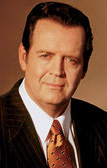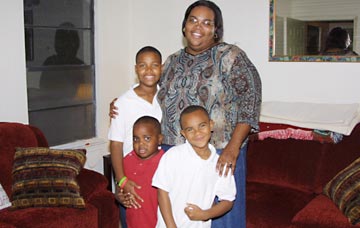Posted: 10/6/03
TEXAS BAPTIST FORUM:
Change the subject
Enough about Baylor! There were at least six pages worth of “information” on the Baylor controversies in the Sept. 22 edition.
God is doing more in Texas than most people are aware. Please seek out and focus on successful ministries around the state instead of perpetuating the controversies by publicizing them, and publicizing them and publicizing them.
Ann Clark
Amarillo
Evangelical, not fundamentalist
I was pleased and relieved to learn of the strong vote of support for President Robert Sloan by the Baylor regents (Sept. 22).
Obviously, there are issues at my alma mater that need to be addressed and probably some apologies to be made from several sides. In addition, a further critical examination of Baylor 2012 is important.
But the goal of extending Baylor's history as an outstanding academic institution with a clear Christian identity is both desirable and difficult.
One point needs to be noted, however. Some of my fellow moderates have portrayed Sloan as a fundamentalist. This reflects, I believe, a failure of critical thinking. Just as many fundamentalists believe everyone to the left of them is a liberal, many Baptist moderates believe everyone to the right of them is a fundamentalist.
Robert Sloan, I believe, with his strong Baptist training and identity, stands squarely in the evangelical tradition, not the fundamentalist.
Bill Blackburn
Kerrville
Dawson family 'misused'
Someone at Baylor appears to be using–misusing–the Dawson family in trying to oust Francis Beckwith because of his association with Discovery Institute (Sept. 22). The letter the family members signed is factually incorrect and hence comes to gravely incorrect conclusions.
Discovery Institute is a think tank that works on issues ranging from transportation to bioethics. It certainly does not engage in “political activities that contravene the separation of church and state.” We don't believe in that and don't advocate it. In fact, in the past we have sponsored programs defending religious liberty.
Moreover, while we do support scientists who are developing the emerging scientific theory known as intelligent design, we are not working “to get the concept of intelligent design into public school textbooks.” For two years, our textbook effort in the institute's Center for Science and Culture has been to promote the availability to students of the scientific evidence against Darwin's theory of evolution, as well as the evidence for it. We have not requested the insertion of intelligent design into textbooks.
The Dawson family members may have been used. At least, that is the most charitable construction to be put upon their misleading letter. One wonders if they bothered to talk to Beckwith before signing a letter intended to cost him his job.
He is not proposing anything to contravene the separation of church and state. But his critics, by their own words, clearly seem to be intent on contravening his academic freedom.
Bruce Chapman
President, Discovery Institute
Seattle
Thanks for help
I would like to express my appreciation for the help the Baptist General Convention of Texas very graciously extended to me.
Thank you for sponsoring the transition retreat, where I could obtain rest and information as how to start life again in the United States after having to return to America as an International Mission Board missionary who refused to sign the 2000 Baptist Faith & Message.
Because of Texas Baptists' graciousness and generosity, I will be able to start life again in America.
Thank you.
Mary Swedenberg
Birmingham, Ala.
Multiple strategies
Harold Phillips has good insight and makes a much-needed emphasis on taking the gospel to the fourth of the world with little access to it (Sept. 22).
His description of what the Cooperative Baptist Fellowship did in its early global missions effort is correct. CBF focused on reaching the most neglected. I join him in praying that more missionaries, whether already serving or yet to be called, will focus on these peoples.
Earlier, if CBF had picked up support of International Mission Board missionaries where they served, it would have exported our convention controversy. But now in many cases the IMB is no longer working closely with local Baptist groups. This has caused a number of them to offer support to returning missionaries who have been fired or forced out of service by the IMB.
The Baptist General Convention of Texas is serving as a channel to U.S. churches that also want to continue supporting them. This enables them to be more effective and efficient than if they had to receive and handle funds themselves from multiple sources.
BGCT is not another mission agency appointing and supporting missionaries as CBF is so this removes the potential of creating a rival mission organization.
In today's world, multiple missions strategies are needed. I believe the BGCT's approach is one such strategy.
R. Keith Parks
Richardson
Can't outlaw Ten
I just wanted to reassure Elsie Graham (Sept. 22) that, despite what the conservative media would have us believe, it does not lie in the power of the U.S. Supreme Court to “outlaw” the Ten Commandments.
Carolyn B. Edwards
Pipe Creek
Biblical tithing
I'm interested in hearing people's attitudes regarding biblical teaching about tithing:
The tithe was solely the produce of the land (Leviticus 27:30, 32; Deuteronomy 14:22,23; 26:12).
Since the tithe was solely the product of agriculture, those without land or herds could not pay the tithe. The poor, who were recipients of the tithe, didn't pay. Jesus could not have paid the tithe.
The Torah commands more than one tithe totaling up to 23.5 percent (Leviticus 27:30; Numbers 18:21; Deuteronomy 12:1-19; 14:22-26; 14:28-29; 26:12-13).
There are only two New Testament passages that mention the tithe (Matthew 23:23 and Luke 11:41-42), but these only affirm tithing under the old covenant. The Apostle Paul, however, says each person should give freely and not under compulsion (2 Corinthians 9:7).
There is little support from the pre-Nicene church fathers for any form of tithing. Christian clergy did not demand tithing until the Council of Tours in 567 A.D. and did not legally enforce it until 777 A.D.
Some will argue Jesus never demanded less of his disciples, but more. Therefore, the tithe ought to be the minimum. However, if Jesus demands more than 10 percent, then the minimum would have to be 11 percent. Didn't Jesus require 100 percent?
Should Baptists be promoting a biblically modified tithe, which is a burden for the poor but lets the rich off easily, or should we simply promote the New Covenant grace of generosity?
Matthew Van Hook
Abilene
Too Christian?
Kate Etue, managing editor of Revolve, says of Thor 5 One, the Bible/magazine's designers, “They're great because they don't make things look churchy or Christiany” (Sept. 8).
Are we now afraid of being thought too Christian?
Mick Tahaney
Port Arthur
Time for national unity
After 9/11, the country united under George Bush to rid the world of terrorism. As time goes on and we move farther and farther away from that date, we seem to be forgetting that we have made a commitment.

This is a time for national unity. With troops still over there, we should spend our time praying for them, rather than arguing. We need to support our president as long as he is in power and our troops as long as they are in harms way.
Think about that and where your priorities are. My priorities are toward my country and what’s best for it, and right now what we have to do is stick together, no matter what happens.
Ryan Burgett
Cedar Hill
You can't serve two masters
Baylor 2012 openly touts Christian principles, yet its practices and goals leave much to be desired. (For background, read the statement’s conclusion: http://www.baylor.edu/vision/index.php?id=212)
Jesus calls for good deeds to be done in secret (Matthew 6:1-4). Baylor encourages continued financial support based on the promise of public glorification of the giver, be it with a banquet, a plaque or a name on a building.

Jesus exhorts us to store up treasures in heaven (Matthew 6:19-21). The conclusion evidences a desire to make Baylor better, to have better Baylor buildings and better Baylor athletics, and the list goes on. Baylor is not storing up treasures in heaven, but rather is looking for heaven on earth in the form of its own mega-churchesque sprawl.
Jesus warns of the impossibility of serving two masters (Matthew 6:22-24). Baylor is attempting to serve both God and U.S. News & World Reports. Any vision must be crafted caring only what God thinks, being glad if the world responds favorably, but not being sad if Baylor remains in Tier Two.
Jesus assures us that our concerns will fall into line when we seek God’s Kingdom first (Matthew 6:33). Baylor seeks God’s kingdom as a subordinate component of the vision, not as its governing principle.
The visionaries’ hope for Baylor would not be a shining example of Christian principles. Rather, their Baylor would be a monument to American materialism and largesse in which a diluted Christianity is only part of the bigger Baylor vision.
Daren Butler
Houston
Clearest reason to leave the SBC
The online articles by Jerry Rankin and Keith Parks reveal the problem within the Southern Baptist Convention.
Rankin, speaking demanding capitulation of any who receive paychecks from the convention, does so with the echo of his mission work in the field contrasting his references to worldly “postmodern” influences. Evidently, these influences drive the demand for “confessional” acquiescence.

The attempt to replace “creedal” with “confessional” is clearly a losing argument, and one can only conjure how a dedicated missionary could embrace a political ploy that severs his relationship with peers who have given their lives in this service.
This clear-cut statement, finally made yet tardy by 18 years, is the affirmation of one basic fact: If Southern Baptists pay you, you will say what we want to hear, or at the very least, you will not say what we don’t want to hear.
Either way, it has little to do with missions, teaching, preaching or administration. It has to do first, last and always with surrender to dogma, not doctrine. The only confession that will be acceptable is: “Yes, sir!” Seen in that light, God’s call for service is secondary to alignment with the “program.”
Rankin’s article provides the clearest reason for leaving the Southern Baptist Convention. These statements, leaving, at last, no doubt about the intent of those who sit in the chairs of control, form the bulwark of their intention to control, by the simple method of a paycheck, both the confession and the creed.
Edward Clark
Danville, Ky.
Glad for New Orleans Seminary's refusal
As I read the article about New Orleans Baptist Theological Seminary and its refusal to go with the rest of the Southern Baptist Convention agencies, I felt glad they didn’t.
The SBC has always been a convention and not a denomination. Denominations have power and control from the top down. In the SBC, the leaders are there to assist the people not to push them around.

I cannot think of a single denomination that has maintained its integrity in regards to biblical principles and correct interpretation. Can you? It is my belief that if the SBC turns into a denomination, we will be looking at the demise of the SBC it as we know it.
Gerald Polmateer
Atascadero, Calif.
News of religion, faith, missions, Bible study and Christian ministry among Texas Baptist churches, in the BGCT, the Southern Baptist Convention ( SBC ) and around the world.




